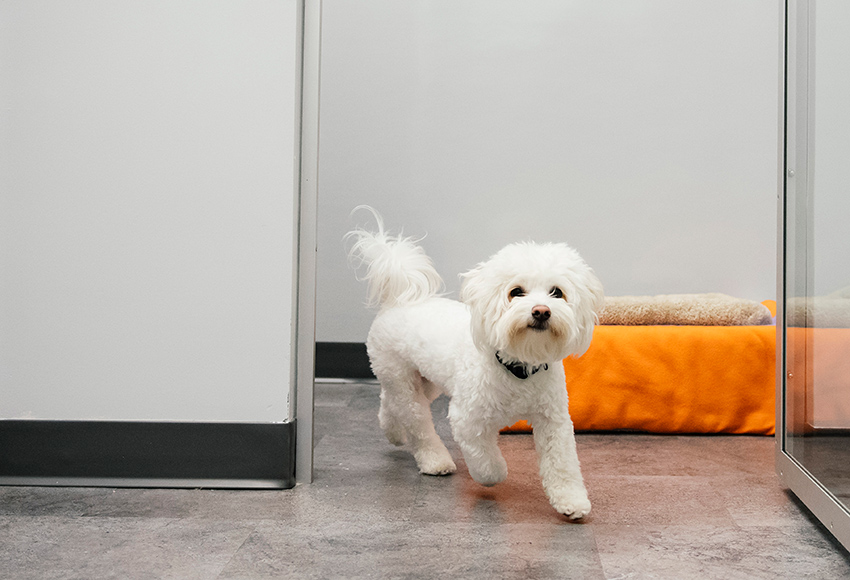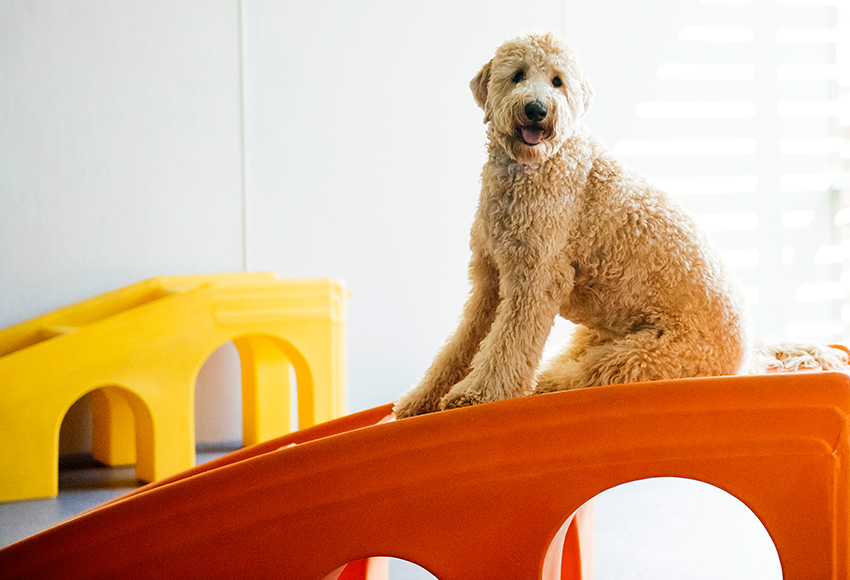The Benefits of Doggy Day Care

You love your dog, and your dog loves you. What more can you ask for, right? Well, not much… but you can always work on bettering the relationship, and increasing your pups understanding of expectations, your moods, and your words.
Take, for instance, the advice on Dogster:
1. Some dogs understand quite a few words
There is a Border Collie called Chaser who is said to know a thousand words. Before him there were other gifted word-learners like another collie called Rico, a mixed breed called Sofia, and a Yorkshire Terrier called Bailey. Some of these dogs also understand categories that multiple objects can belong to or words that describe qualities objects have, and even to respond correctly to simple two-word sentences.
It is not clear how much of the difference between these gifted dogs and the average pet is innate talent, as opposed to intensive training. Most of us know that there are at least a few words that must be S-P-E-L-L-E-D out to avoid excessive canine excitement. Words and phrases that are used often will slip into your dog’s lexicon over time and may be understood perfectly.
2. Most dogs understand a lot of what we say even without understanding the words
It has been suggested that the sounds humans make developed emotion content long before we developed words with meaning. That is to say, we came upon music long before language. And it is commonly said that as much of 80-percent of the meaning in our language comes from body language and tone of voice rather than the actual words we choose to say.
A research group in Budapest used MRI scanning to show that dogs’ brains respond to human voices in the same basic ways as humans. While humans have a smaller, more specialized part of the brain dealing with spoken language, humans and dogs both use the same area of the brain to process the emotional meaning of certain speech patterns. This high level of sensitivity to emotional content may be why several surveys have found that about half of dog owners feel their dogs are able to understand them psychically.
3. Talking to your dog helps human relationships and human health
Talking with your dog can help get issues out in the open and help people work through difficult discussions. People have been found to use dogs to help avoid and resolve conflicts between each other by directing comments instead to a dog. Including a dog in the discussion can add humor and help build the family’s feeling of being a close group with a strong identity.
Talking to dogs can help children by providing them with a non-judgmental friend and companion. Talking to dogs helps elderly owners concentrate on the present and stay active. Animals have also been shown to have a special ability to elicit communication from some children with conditions on the autism spectrum that make them unwilling to interact with humans.
4. We tend to do the things we do for a reason
There was a time when people were told not to use “baby talk” because it would actually slow a baby’s development. But later research showed that the simplified and exaggerated nature of baby talk may be the very best way to introduce infants to language. And the babies, for their part, show a strong preference to listening to baby talk over other language styles.
Dog talk also has distinctive features, such as a high level of repetition. Things that people do widely and frequently often arise because they are purposeful and constructive, even when we do not consciously know what that purpose is.
5. It’s good for the dog
While there are many ways to relate to your dog, and not everyone is a chatterbox, in general, people who talk to their dogs tend to show other signs of being closely bonded with their dog — although it should be mentioned that men talk to dogs less than women with a similar level of attachment.
A quick search shows that countless research has been done on dog/people communication, and it all points toward the benefits of us talking to our pups. So what’s a good pet parent to do when you’re gone at work the vast majority of the time? Enroll in doggy daycare!
How Doggy Daycare Deepens Your Relationship with Your Dog
Doggy daycare is great for socialization and exercise, and we all know a tired dog = a happy dog. But, as evidenced above, there’s a human element there that really can help your dog understand you and respond to you. By coming to doggy daycare daily and listening to our amazing room attendants talk to them and the other pups, your dog will gain a more nuanced understanding of tone, words, and body language people use. That results in a smarter, more responsive dog for you!
Ready to get started? Book at tour in Northville! Fill out the form below and we’ll call you right away.






